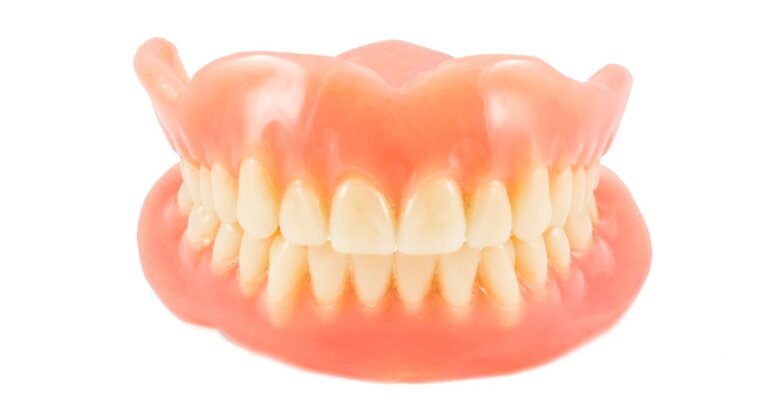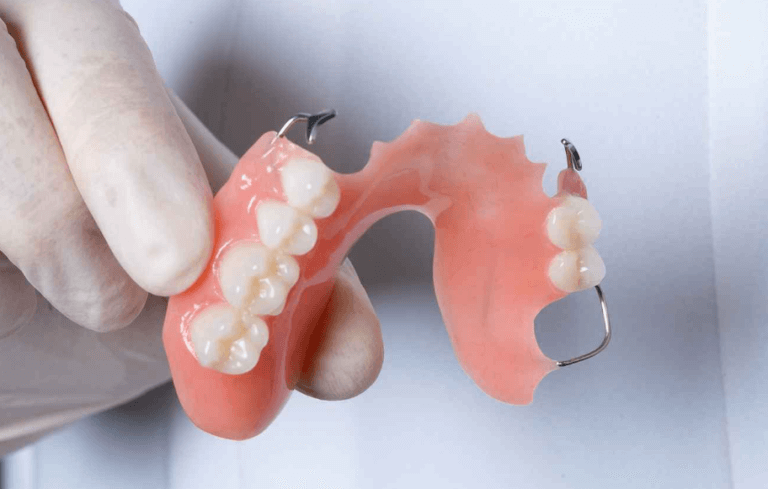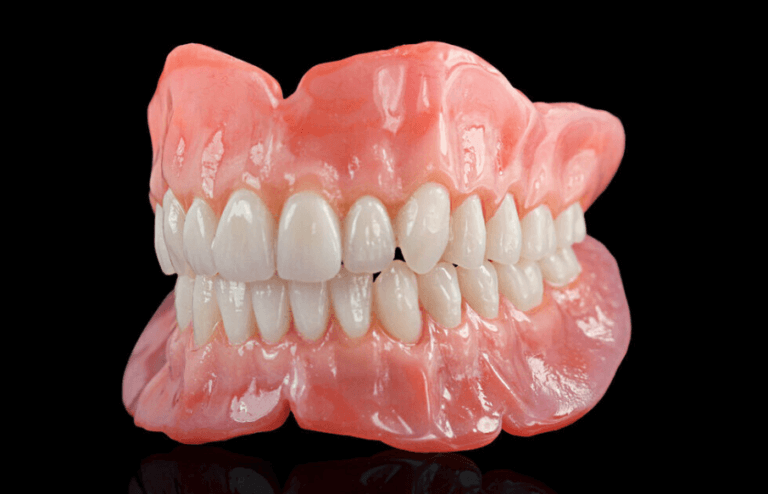Denture Reline

Understanding Denture Relining
Dentures naturally become loose over time due to changes in your gums and jawbone structure, impacting their fit and comfort. A Denture Reline is a dental procedure that modifies the base of your dentures to better align with the contours of your gums, restoring their snug fit. Properly fitting dentures enhance comfort, improve chewing ability, and can prevent sore spots or irritation.
Before deciding on whether Denture Reline are right for you, there are some things you should know:
- Who Needs A Denture Reline?
- Types Of Denture Reline
- Advantages Of A Denture Reline
- Alternative Treatments If You Do Not Choose A Denture Reline
- How Much Does A Denture Reline Cost?
- What Are The Steps In The Denture Reline Procedure?
- Frequently Asked Questions About Denture Relining
If you have any further questions about Denture Reline or other dental services offered at Atlas Dental, please contact us.

Free Phone Consultation
Have questions about an ill-fitting denture? Book a free phone consult with our Toronto dentist

5 star google reviews
Our patients love our emergency dental service! See for yourself why patients choose Atlas Dental.

Book a denture reline appointment online
We help our denture wearing patients smile confidently again.
Who Needs A Denture Reline?
While not everyone with dentures will need a reline, the following signs may indicate it’s time to consider this procedure:
- New Denture Wearers: Your gums may adapt to the dentures, causing a loose fit. Early relining helps maintain comfort.
- Discomfort or Sore Spots: Persistent irritation or sore spots may signal a need for relining to relieve pressure and restore balance.
- Difficulty in Chewing or Speaking: Clicking sounds or denture slippage while eating or talking are signs of an improper fit.
- Noticeable Fit Changes: If you find yourself relying on adhesives, your dentures likely need adjustment.
- Facial Appearance Changes: A poor fit can lead to a sunken look. A reline helps maintain facial contours.
- Older Dentures: Dentures older than five years may benefit from relining, even if they still feel comfortable.
If you experience any of these issues, talk to your dentist to determine if a denture reline could improve your comfort and denture function. If you have further questions about Denture Reline, please contact us.
Types Of Denture Reline
There are two main types of denture relines. Choosing the right one depends on your comfort needs, oral health, and your dentist’s recommendation:
1. Hard Denture Reline:
- A hard reline uses a durable, rigid material to reshape the base of your dentures for a long-lasting fit.
- Ideal for individuals with healthy gum tissue, hard relines provide a stable fit that can improve chewing efficiency.
- Note: Hard relines may require adjustments over time due to their firmness.
2. Soft Denture Reline:
- A soft reline uses a more flexible material that cushions sensitive gums, offering extra comfort.
- Preferred by patients with tender gums or those who have significant bone loss.
- Consideration: Soft relines may need to be replaced more frequently as the material can wear over time.
Discuss with your dentist which reline type aligns with your needs for optimal comfort and fit. If you have further questions about Denture Reline, please contact us.

Advantages Of A Denture Reline
Denture relining offers numerous benefits that can enhance your daily experience with dentures:
- Enhanced Comfort: Relines eliminate discomfort by ensuring a snug fit, reducing sore spots.
- Improved Stability: Well-fitted dentures reduce slippage, allowing you to eat, speak, and laugh with confidence.
- Better Chewing Efficiency: A secure fit improves chewing ability, enabling a more balanced diet.
- Improved Speech: A proper reline minimizes speech issues, making communication clearer and easier.
- Facial Appearance Maintenance: A well-fitted denture supports facial muscles, maintaining a youthful, natural look.
- Long-Term Oral Health: Relining prevents issues like gum sores, which could lead to further oral complications.
- Cost-Effective: Denture relining is more affordable than purchasing new dentures.
- Increased Confidence: Secure dentures eliminate the worry of denture movement, boosting self-assurance in social settings.
For the best results, a professional dental reline ensures long-lasting comfort and confidence. If you have further questions about Denture Reline, please contact us.
Alternative Treatments If You Do Not Choose A Denture Reline
If a denture reline isn’t right for you, there are other treatments to address fit and comfort issues:
- New Dentures: If your current dentures are significantly worn, replacing them may provide a better fit.
- Denture Adhesives: Adhesives offer temporary stability but don’t solve the underlying fit problem.
- Implant-Supported Dentures: These attach to dental implants, providing a secure, stable fit that feels natural.
- Dental Implants or Bridges: For some, permanent implants or bridges are preferable for a more fixed solution.
Consult your dentist to explore which solution aligns best with your oral health needs and lifestyle. If you have further questions about Denture Reline, please contact us.

Cost of Denture Reline
The cost of a Denture Reline can range from $331 to 456 with or without a Dental Lab Fee, depending if you require a soft or hard reline, and the type of denture. The codes relevant to dentures in the Ontario Dental Association’s Suggested Fee Guide appear as follows:
Denture, Reline, Direct Complete Denture (Soft Reline)
- 56211 – Maxillary: $379
- 56212 – Mandibular: $379
Denture, Reline, Direct Partial Denture (Soft Reline)
- 56221 – Maxillary: $331
- 56222 – Mandibular: $331
Denture, Reline, Processed Complete Denture (Hard Reline)
- 56231 – Maxillary: $366 + Dental Lab Fee
- 56232 – Mandibular: $456 + Dental Lab Fee
Denture, Reline Processed, Partial Denture (Hard Reline)
- 56241 – Maxillary: $366 + Dental Lab Fee
- 56242 – Mandibular: $366 + Dental Lab Fee
Denture relines are sometimes considered a supplementary service by dental insurance plans and may or may not be covered by your dental insurance. Be sure to find out from your dental insurance plan provider how much you are eligible for before going ahead with dental treatment. Your dentist can help you submit an predetermination to your dental insurance. Our fees are consistent with the ODA Fee Guide.
For patients without dental insurance, Atlas Dental is pleased to offer dental financing through iFinance Dentalcard. Affordable payment plans start at 7.95% for terms of 6 months to 6 years. To learn more about Dentalcard dental treatment financing, follow this link.
Steps In The Denture Reline Procedure
Here’s what to expect during your denture reline appointment:
- Initial Evaluation: Your dentist will assess your current denture fit and discuss any discomfort you’ve experienced.
- Impressions and Measurements: Impressions of your gums are taken to customize the denture’s fit.
- Reline Material Application: The chosen material is applied to the denture, molding to your mouth’s shape.
- Placement and Adjustments: The dentist will place the relined denture in your mouth, checking for comfort and fit.
- Final Trimming and Polishing: Adjustments are made to ensure smoothness, and the denture is polished.
- Post-Procedure Care: You’ll receive care instructions to help maintain the reline’s benefits.
- Follow-Up: Your dentist may schedule a follow-up to ensure ongoing comfort and fit.
After the procedure, follow all aftercare guidelines and attend follow-ups to ensure the best results. If you have further questions about Denture Reline, please contact us.
Frequently Asked Questions About Denture Relining
- Why do dentures need relining?
Over time, gum tissues can change due to bone resorption, weight loss, or aging, causing dentures to become loose or uncomfortable. Relining addresses these changes for a better fit.
- How often should I get a reline?
Denture relines are typically needed every 1-2 years. Check with your dentist to assess your specific needs.
- Can I use my dentures right after relining?
Yes, but follow our specific denture aftercare instructions provided by your dentist.
- Is a reline painful?
A reline is generally painless and can relieve existing discomfort caused by ill-fitting dentures.
- How long does the relining process take?
A chairside reline can be completed in a single dental visit, while a laboratory reline may require the dentures to be sent out, taking a few days.
Denture relining is an effective way to restore comfort and functionality to your dentures, ensuring a better fit as your oral anatomy changes. If you have further questions about Denture Reline, please contact us.

